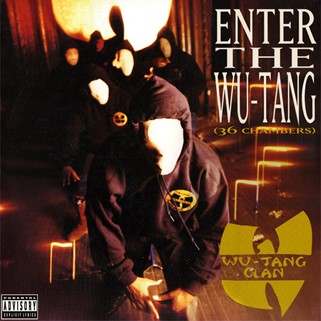“Enter the Wu-Tang (36 Chambers)” is celebrated as one of the most influential hip-hop albums of all time. The Wu-Tang Clan’s debut album delivered a blueprint for future hip-hop projects, specifically for the East Coast hip-hop scene as it became the origin of inspiration for innumerable future artists. The 30th anniversary of “Enter the Wu-Tang (36 Chambers)” must be commemorated due to its significant impact and innovation within the hip-hop genre.
The infamous American hip-hop collective Wu-Tang Clan features RZA, GZA, Method Man, Raekwon, Ghostface Killah, Inspectah Deck, Ol’ Dirty Bastard, U-God and Masta Killa. The group was formed in Staten Island, N.Y. in 1992, shortly before the release of their debut album, “Enter the Wu-Tang (36 Chambers).” The record quickly attracted an underground following for the innovative collective, which grew into extensive acclaim for their album from fans and critics alike.
The de-facto leader of Wu-Tang Clan, RZA, recently announced a series of shows celebrating the anniversary of their debut album. The performances are set to take place early November at New York City’s Gramercy Theatre for a three-night stand and are expected to feature members of the Wu-Tang Clan, accompanied by a live orchestra experience.
Wu-Tang Clan began recording together at Firehouse Studios, a small and cheap recording studio in the heart of Brooklyn. Their first single, “Protect Ya Neck,” was released independently, but rapidly reached a wide orbit of underground fans. 30 years later, their debut album is now certified triple platinum and has sold well over three million copies in the U.S. Following the album’s release, each member eventually launched their own successful solo projects.
“Enter the Wu-Tang (36 Chambers)” begins with a sample from the 1981 film, “Shaolin Shadow Boxing”: “Do you think your Wu-Tang sword can defeat me? En garde, I’ll let you try my Wu-Tang style.” The sample introduces the audience to the hypnotic beat and gritty lyrics of “Bring Da Ruckus.” Their debut album was heavily influenced by Shaw Brothers Studios’ films, like “The 36th Chamber of Shaolin” and featured countless samples from other Kung Fu films embedded throughout the album.
RZA admitted to his personal obsession with Kung Fu movies and highlighted in an interview with Film Comment, “It was through these films that I was able to see and feel from a non-Western point of view. Some of the dialogue struck a chord with me.” The lyrics in “Enter Wu-Tang” blend themes of urban life, martial arts and comic books with chilling samples. The collective’s lyricism highlights harmony between Kung Fu films and Five Percent Nation philosophies. Every track illustrates a collage that encapsulates the duality between Eastern and Western ideologies.
Each song represents a new theme or social dilemma that the Wu-Tang Clan depicts to their audience. Their passionately gritty lyrics have inspired slang within the culture itself like their eighth track, “C.R.E.A.M.” (an acronym for “Cash Rules Everything Around Me”). This track provides a raw and reflective outlook on growing up in New York City. The lyrics focus on passionate storytelling which conveys a powerful reflection on the hopelessness of capitalism in New York City, where many are trapped in cycles of poverty and crime.
The members’ chronicle their own personal experiences and traumas growing up in New York City through uncomfortable yet informative lyricism. The record also contains sentimental and reflective commentary on the rappers’ lifestyles in New York City, capturing the overlooked and misunderstood perspectives of urban youth.
On track 11, “Tearz,” RZA reflects on the trauma of his brother getting shot. The beautiful sampling features an ominous melody played on an organ and a catchy chorus from Wendy Rene’s “After Laughter (Comes Tears).” This eerie sampled melody exudes a heap of emotion on top of RZA’s passionate reflection on his brother’s murder. The rapper’s raw lyrics enable the group to release their anger, anxiety and truth through their music.
The members of the Wu-Tang Clan illustrated their own unique styles through personal lyrics embedded within stand-out sampling and composition. “Enter the Wu-Tang” established a foundation for future hip-hop projects, inspiring contemporary trends in lyricism and sampling. With the album’s 30th anniversary approaching Nov. 9, it is critical to recognize the prosperity and influence of “Enter the Wu-Tang (36 Chambers)” which ultimately redefined the genre of hip-hop entirely.
Crissy Saucier can be reached at [email protected].



















